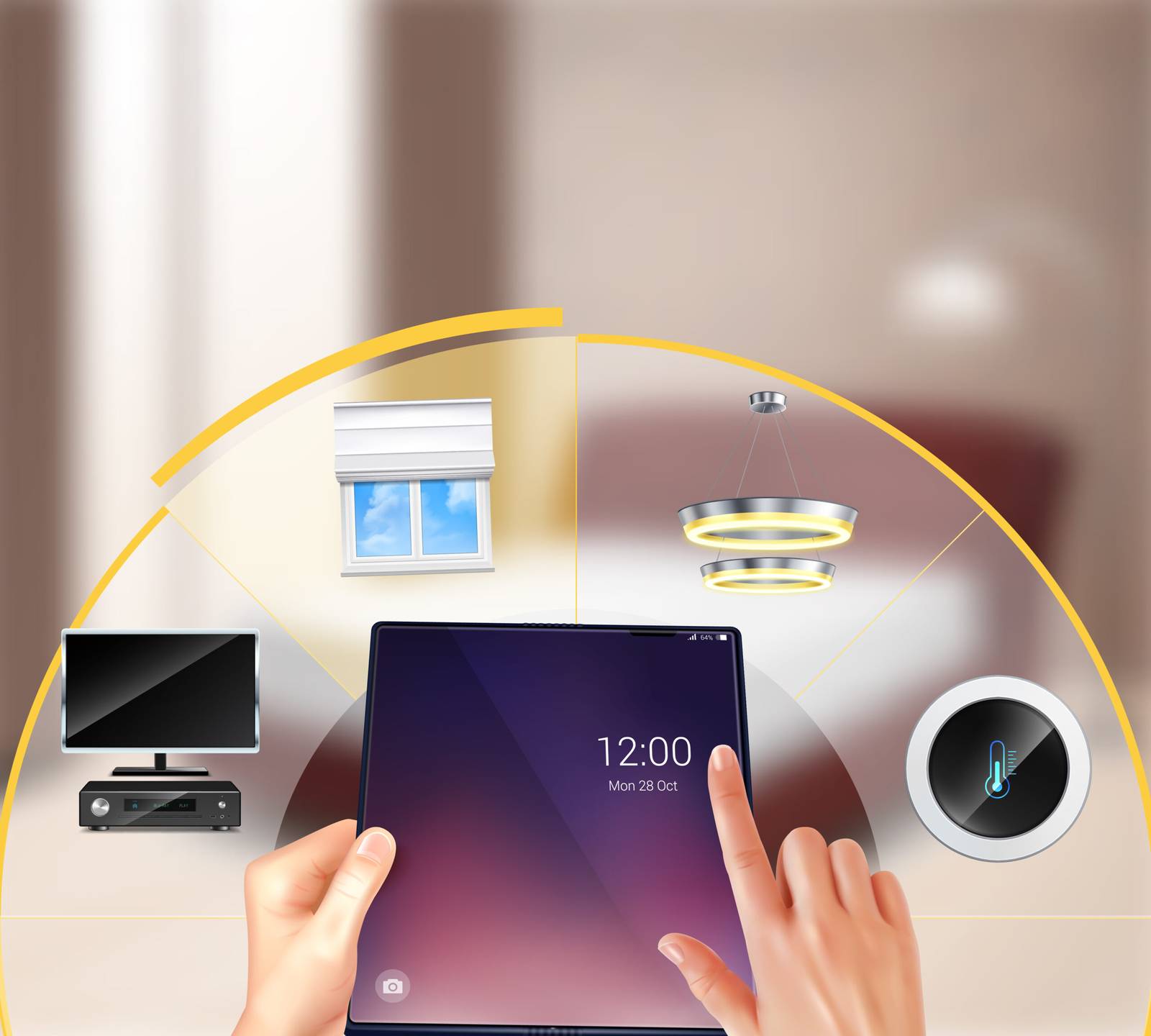Smart Homes: Tech-Transformed Living

by Web Digital
In the digital age, the concept of a home has evolved beyond its traditional definition. With the integration of smart technology and home automation, living spaces have become dynamic environments that adapt to our needs, preferences, and lifestyles. This article delves into the world of smart homes and home automation, exploring the technologies, benefits, challenges, and the exciting potential they hold for the future of domestic living.
Defining Smart Homes and Home Automation
A smart home is a residence that utilizes technology to enhance its functionality, efficiency, and convenience. Home automation refers to the integration of various devices and systems to create a seamless network that can be controlled and monitored remotely. These technologies work in tandem to create an interconnected ecosystem, offering residents unprecedented control and customization of their living environments.
Technologies Shaping Smart Homes
Smart homes incorporate a range of technologies that work together to optimize comfort, security, and energy efficiency:
1. Internet of Things (IoT)
The IoT forms the foundation of smart homes, connecting devices and appliances through the internet, enabling them to communicate and share data.
2. Voice Assistants
Voice-activated virtual assistants like Amazon’s Alexa, Google Assistant, and Apple’s Siri serve as the command centers of smart homes, allowing residents to control devices using voice commands.
3. Smart Sensors
Sensors identify alterations in the surroundings and initiate corresponding actions. For instance, motion sensors can turn on lights when someone enters a room.
4. Smart Thermostats
Smart thermostats learn user preferences and adjust temperature settings accordingly, saving energy and ensuring optimal comfort.
5. Smart Lighting
Smart lighting systems enable users to control brightness, color, and scheduling of lights through smartphones or voice commands.
Benefits of Smart Homes
The integration of smart technology offers numerous advantages for homeowners:
1. Convenience
Smart homes streamline daily tasks, such as adjusting lighting, controlling appliances, and setting the thermostat, making life more convenient.
2. Energy Efficiency
Home automation systems optimize energy consumption by adjusting lighting and temperature based on occupancy and time of day.
3. Enhanced Security
Smart security systems include features like remote surveillance, motion detection, and access control, enhancing the safety of residents and their belongings.
4. Remote Monitoring
Homeowners can remotely monitor their properties, receive real-time alerts, and even view security camera feeds through smartphones or computers.
5. Accessibility
Smart home features cater to individuals with disabilities or mobility challenges, enabling greater independence.
6. Increased Home Value
The integration of smart technologies can enhance the value of a property and make it more appealing to potential buyers.
Challenges and Considerations
While the potential of smart homes is vast, there are challenges to navigate:
1. Privacy Concerns
Smart home devices collect data that raises concerns about user privacy and the potential for data breaches.
2. Compatibility Issues
Not all devices are compatible with one another, leading to challenges in creating a cohesive and interconnected system.
3. Technical Complexity
Setting up and managing a smart home can be complex, requiring technical knowledge and troubleshooting skills.
4. Cost
The upfront cost of smart home devices and systems can be a barrier for some homeowners.
5. Security Risks
As smart homes become more connected, they can become vulnerable to hacking and unauthorized access.
Future Possibilities
The evolution of smart homes holds exciting possibilities:
1. AI Integration
Artificial intelligence will play a greater role in predicting and adapting to user preferences, enhancing automation.
2. Energy Grid Integration
Smart homes can contribute to energy efficiency by integrating with smart grids and optimizing energy consumption.
3. Health Monitoring
Smart home devices can track health metrics and provide insights to users and healthcare professionals.
4. Sustainable Living
Smart homes will contribute to sustainable living by optimizing energy use, water consumption, and waste management.
5. Aging in Place
Smart homes can support elderly individuals by providing safety features and assistance with daily tasks.
Conclusion
Smart homes and home automation have revolutionized the way we interact with our living spaces. From controlling lighting with a voice command to remotely monitoring security cameras, technology has transformed houses into intelligent, adaptive environments. While challenges like privacy concerns and technical complexities exist, the potential benefits are vast—convenience, energy efficiency, enhanced security, and increased property value. As the technology continues to advance, the future of smart homes holds even greater promise, with the integration of AI, sustainable living practices, and personalized health monitoring. As homeowners embrace this technological shift, they are not merely investing in devices but in a lifestyle that seamlessly integrates technology into the heart of their domestic life.
Recommended Posts

Email Marketing Automation for Mississauga Businesses
September 19, 2024

Marketing Automation for Toronto Businesses: Increasing Efficiency
September 2, 2024

Customer Journey Mapping: Understanding Toronto Consumers
August 31, 2024
